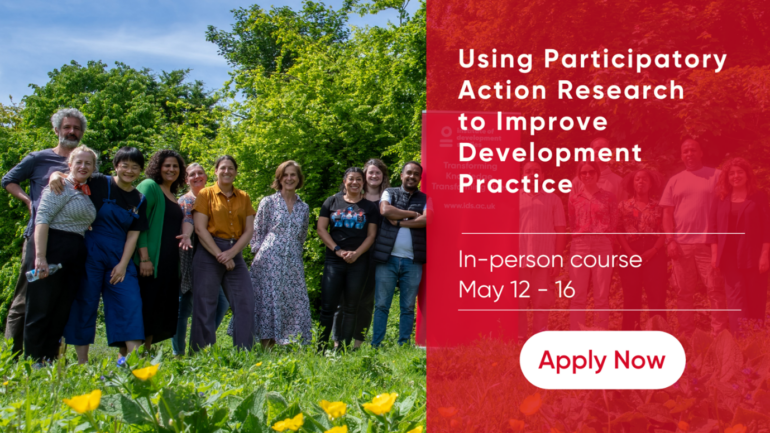Short courses relevant to global development researchers and practitioners
Courses at the Institute of Development Studies.
Poverty-focused mixed methods research and evaluation
This online course highlights ways in which both quantitative and qualitative methods can be brought together, to more effectively examine poverty and inequality reduction. If your work or research is to address poverty and inequality, IDS’s online course will help you understand, design, and implement mixed methods research and evaluations.
April 02 to 30, 2025. Online.
Using participatory action research to improve development practice
Develop your knowledge and skills to bring participatory action research into your social change work. IDS’s in-person course will equip you with the conceptual and practical tools to design and carry out PAR in your own organisations. You will also gain a practical understanding of how to achieve rigour using participatory methods.
May 12 to 16, 2025. IDS, Brighton, UK
CIDT, Wolverhampton
Results-based management thinking tools and the logical framework approach
This course aims to provide exposure to a range of ‘thinking tools’ that facilitate Results Based Management (RBM). You will use practical approaches to learn how to apply these tools to design, manage and assess projects, programmes and organisational performance.
Monitoring, evaluation and learning
This course aims to provide a working knowledge of Monitoring, Evaluation and Learning (MEL) processes for practitioners working around the project cycle. You will gain useful knowledge to strengthen your overall confidence and capability to apply standard MEL approaches in programmes and projects.


